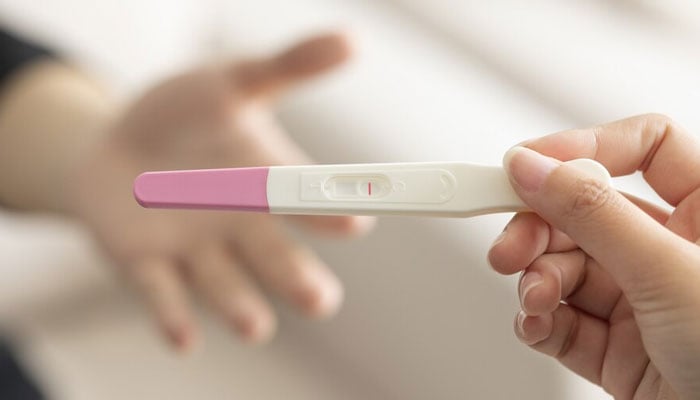[ad_1]

Danish researchers have found that a blood test taken after a miscarriage as early as week five of pregnancy can determine if the fetus had a chromosome anomaly, which is the case in about 50 to 60 percent of miscarriages.
By analysing the DNA, doctors can predict the risk of future miscarriages and devise treatment plans.
This ongoing study, called COPL, aims to provide a comprehensive database on pregnancy loss and women’s health, potentially preventing five percent of the 30 million annual miscarriages worldwide.
The study, led by gynaecologist Henriette Svarre Nielsen and her team, found that analyzing the mother’s blood sample can determine if the fetus had a chromosome anomaly, which accounts for about 50 to 60 percent of miscarriages.
By identifying anomalies and predicting future risks, doctors can develop treatment plans and potentially prevent five percent of the 30 million miscarriages that occur globally each year.
In an ongoing study called COPL (Copenhagen Pregnancy Loss), all women who have experienced a miscarriage and visited the Hvidovre hospital emergency room in Denmark are offered the blood test, with over 75 percent of them accepting so far. This test helps women gain a better understanding of their pregnancy loss and facilitates the identification of chromosome anomalies in the fetus through DNA analysis.
By determining the severity of the anomalies and predicting the risk of future miscarriages, doctors can explore potential causes such as hormonal imbalances, endocrinal illnesses, coagulation problems, or lifestyle factors. The project, launched in 2020, aims to create a comprehensive database by studying a large cohort of 1,700 women, providing valuable insights into pregnancy loss, reproduction, and women’s health.
Svarre Nielsen, with her extensive experience in reproductive health, hopes to develop treatments and address the lack of focus on finding explanations and supporting the mental health of couples after miscarriages. Rikke Hemmingsen, who experienced multiple miscarriages before having children, expressed her desire for the project to have been available to her.
She believes that the project offers hope for reducing the suffering experienced by women and transforming the grief of pregnancy loss into something meaningful. However, the topic of pregnancy loss remains largely taboo, making it difficult for couples to openly discuss their experiences and seek appropriate treatment. Svarre Nielsen emphasizes the importance of open dialogue to raise awareness and ensure that women are aware of the availability of specialists who can assist them.
The findings of the study have the potential to prevent a significant percentage of miscarriages globally, marking a significant step forward in understanding and addressing pregnancy loss.
By utilizing blood tests to identify chromosome anomalies and predicting future risks, medical professionals can offer targeted treatments and support to reduce the emotional and physical burden faced by women and their partners.
[ad_2]
Source link






